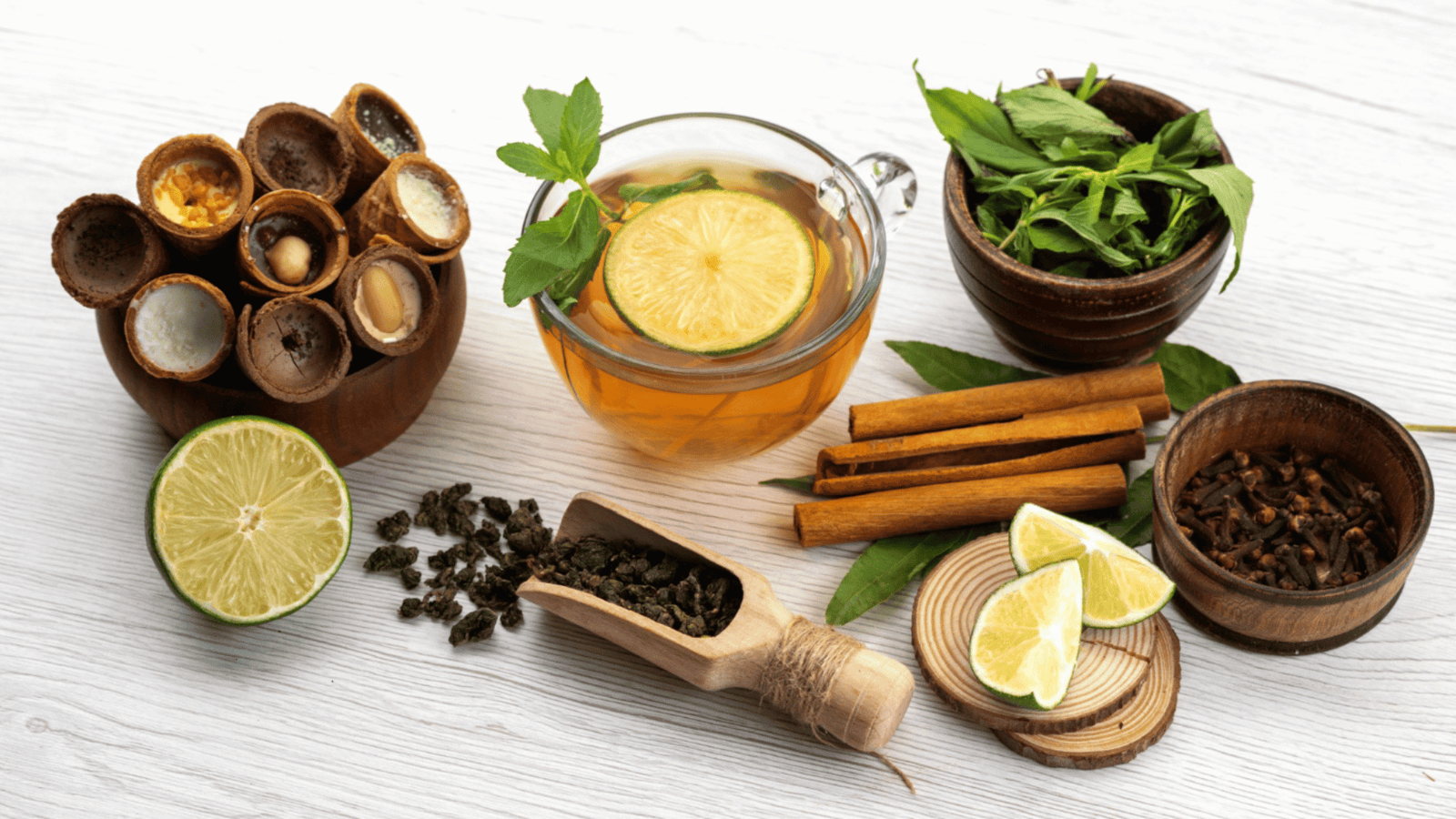
Introduction
For centuries, tea has been more than a beverage in India — it has been a tradition, a healer, and in many ways, a philosophy of life. Long before the British introduced their version of milk-and-sugar tea, India had its own treasure trove of herbal infusions — natural brews made with tulsi, ginger, cardamom, and other Ayurvedic herbs:contentReference[oaicite:0]{index=0}.
Historical Roots of Herbal Tea in India
Herbal Wisdom in Ancient Scriptures
The Rigveda and Atharvaveda mention plant-based decoctions for healing and purification. In Ayurveda, Kashayam or Kadha were prescribed to balance doshas:contentReference[oaicite:1]{index=1}.
Ayurveda and Herbal Brews
Charaka Samhita recommended herbal decoctions for digestion and immunity, while Sushruta Samhita highlighted tulsi and licorice for inflammation and respiratory strength:contentReference[oaicite:2]{index=2}.
A Daily Ritual
Families brewed seasonal teas — ginger and pepper for winter, fennel for summer, and tulsi year-round — as part of mindful daily living:contentReference[oaicite:3]{index=3}.
Herbal Tea vs. Milk Tea — A Cultural Shift
- The Original “Indian Tea”: Herbal decoctions before colonial chai.
- British Milk Tea: Introduced in the 1800s with Assam & Darjeeling plantations.
- A Decline in Heritage: Herbal brews gave way to caffeine-driven routines:contentReference[oaicite:4]{index=4}.
Benefits of Herbal Tea
- Detoxification: Ginger, fennel, lemongrass cleanse & improve metabolism.
- Strengthens Immunity: Tulsi supports respiratory health & infection defense.
- Aids Digestion: Peppermint, fennel, and ginger enhance Agni.
- Reduces Stress: Chamomile, ashwagandha, and brahmi calm the mind.
- Supports Heart Health: Hibiscus regulates blood pressure.
- Weight Management: Ginger, cinnamon, and lemongrass promote fat metabolism.
- Balances Doshas: Warm teas for Vata, cooling teas for Pitta, spicy teas for Kapha:contentReference[oaicite:5]{index=5}.
Things to Avoid While Consuming Herbal Tea
- Overconsumption → dehydration or acidity
- Mixing with milk/refined sugar → reduces potency
- Excess in pregnancy → consult practitioner
- Low-quality ingredients → always choose organic,
Herbal Tea in Indian Culture & Daily Life
- A Ritual of Healing:Kadha with tulsi, ginger, cinnamon for seasonal health.
- Yogic & Spiritual Use: Tulsi-brahmi tea before meditation.
- Regional Traditions: Kashaya in South India, tulsi-ginger tea in the North, rhododendron tea in the Himalayas
Why Herbal Tea Was Forgotten
Colonial influence, urban lifestyles, and marketing of “chai” led to a disconnect from traditional herbal teas:.
Revival of Herbal Tea in Modern Times
- Global Wellness: Growing yoga & Ayurveda interest brings herbal tea back.
- Ayurveda Goes Global: Brands now export tulsi, chamomile, and Ayurvedic teas worldwide.
- Responsibility to Reconnect: Drinking herbal tea revives heritage, health, and mindfulness
Conclusion
Herbal tea isn’t a trend — it’s India’s original wellness drink. Each cup carries history, Ayurveda, and balance for body and mind.
👉 Explore FitClan Life’s range of Herbal Teas and bring Ayurveda to your daily life.



